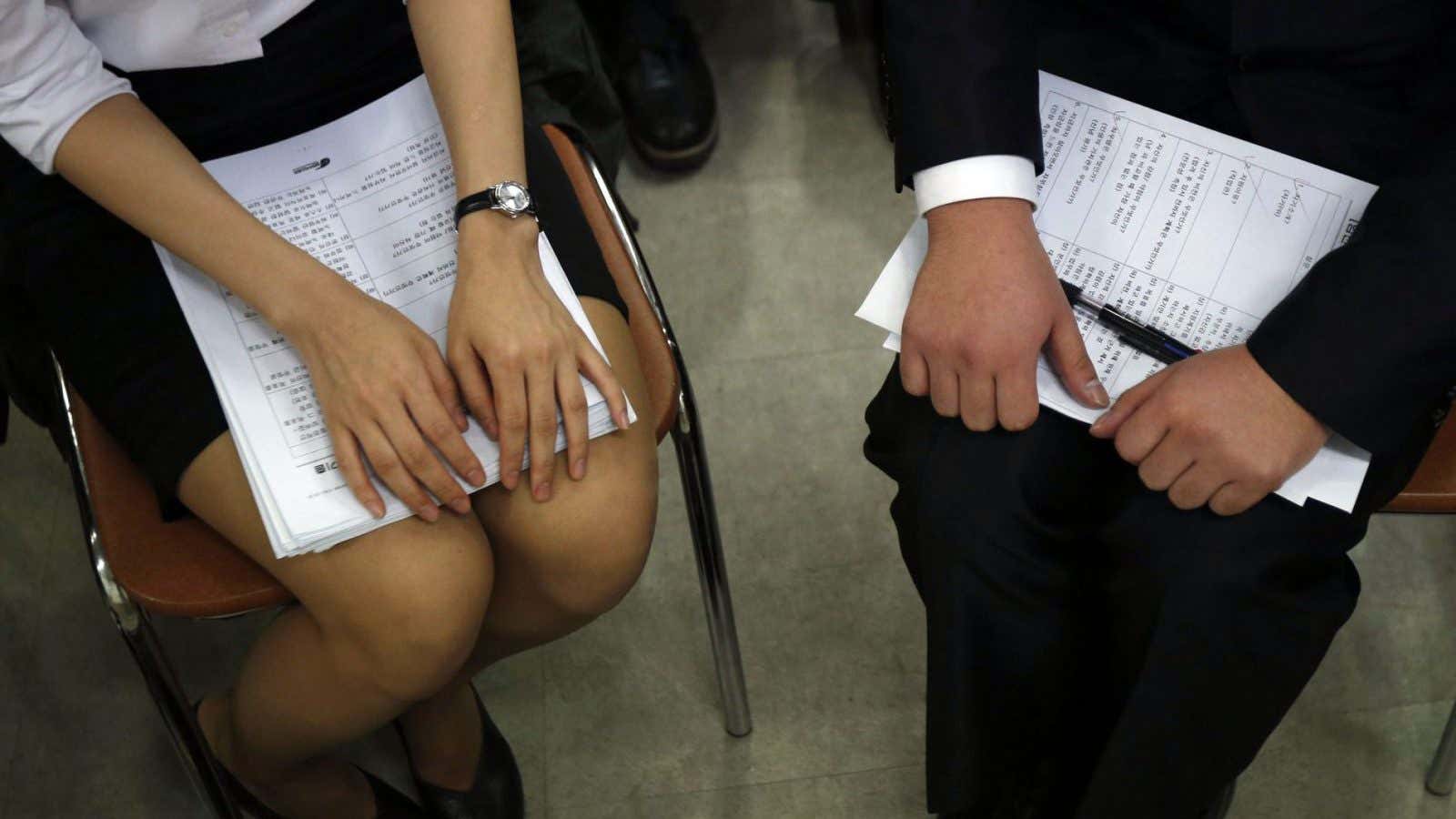Google was once infamous for giving job applicants brain teasers (though those were later discontinued and Google even admitted these questions didn’t help to find good employees). In South Korea, job applicants have traditionally faced a slew of baffling questions. And like Google, employers are starting to doubt their value.
Tistory, a South Korean blog, compiled a list of questions (link in Korean) from various job search sites that seek to prepare job applicants for the “personality section” of the job interview. They included some standard interview questions such as ”Why do you want to work for this company?” or “Do you think you have leadership qualities?” but some of them (link in Korean) delved into areas that seem far afield from normal job responsibilities. They include:
- What do your parents do for a living?
- How much alcohol can you handle?
- What will you do if you don’t get hired by our company?
- Have you ever been in a situation where you felt you were in despair?
- How long do you plan on working for our company?
- What do you plan on spending your first paycheck on?
- How many close friends do you have?
- How does it feel like to live far away from your parents?
And women in South Korea—which was ranked 111th (lower than China, India, and Japan) in gender equality according to a 2013 gender report (pdf) by the World Economic Forum—have an additional set of questions to worry about:
- As a woman, do you want to be an executive?
- How many years do you think you’ll be working?
- What will you do with your job if you get married?
- Are you dating anyone?
- What do you think of male-female interactions?
- How long does it take you to do your makeup?
Times are changing, and now many companies are sticking to business-related questions in interviews, said Sungsik Ahn, a career counselor at Korea University. “Nowadays most companies do not ask such personal questions to interviewees,” said Ahn.
In the past, the reasoning behind asking these questions was to determine whether the person would fit the company’s culture, Ahn said. In Korea, he said, these questions also weren’t considered paticularly personal. Questions about things like drinking capacity were also asked to those in certain fields, such as construction or sales, where drinking is more or less part of the job.
Nowadays, however, stricter privacy laws (pdf), the fear of annoyed interviewees taking their frustrations to the internet, and more objective competency measurements, have made companies less inclined to ask those questions.
